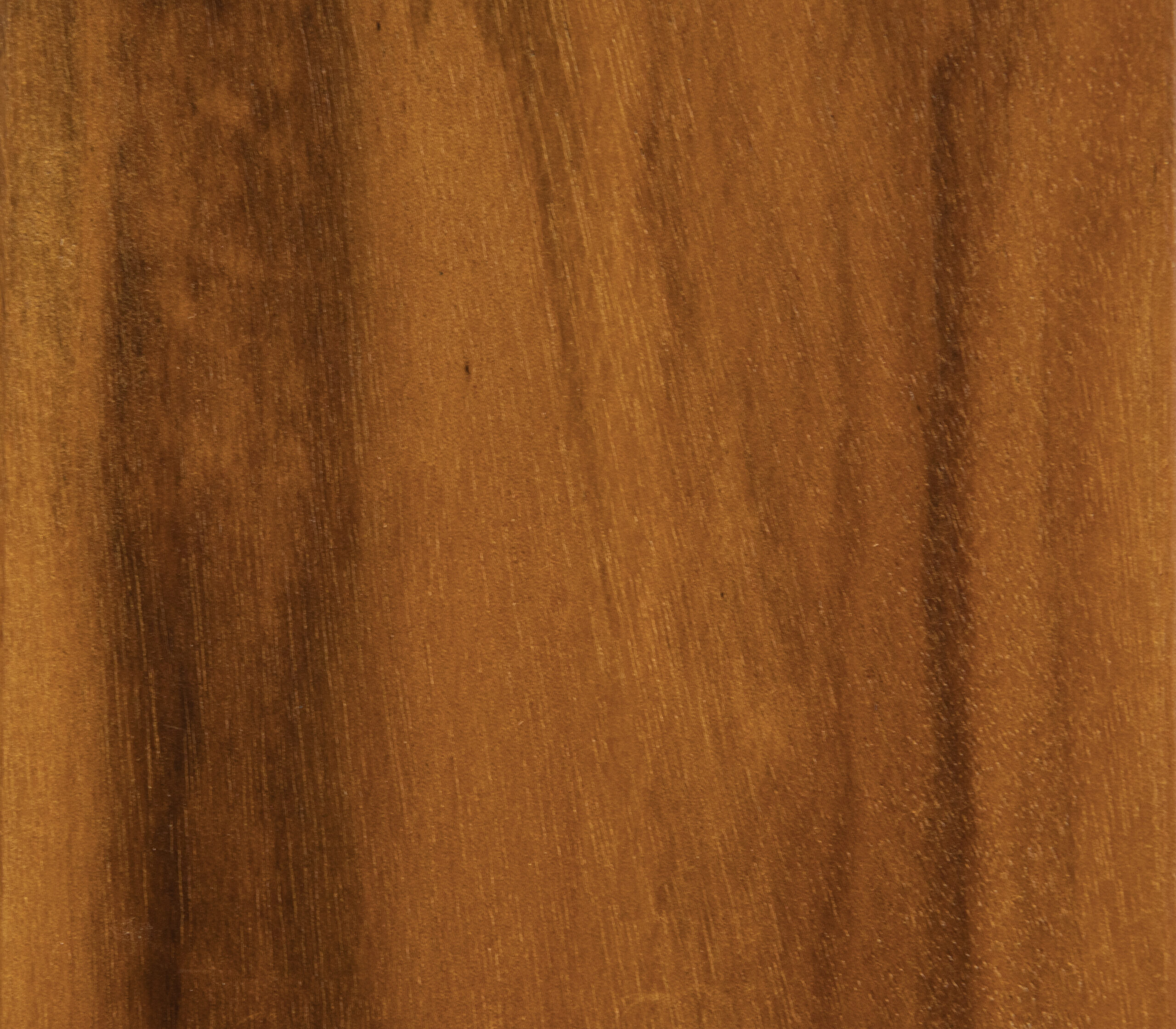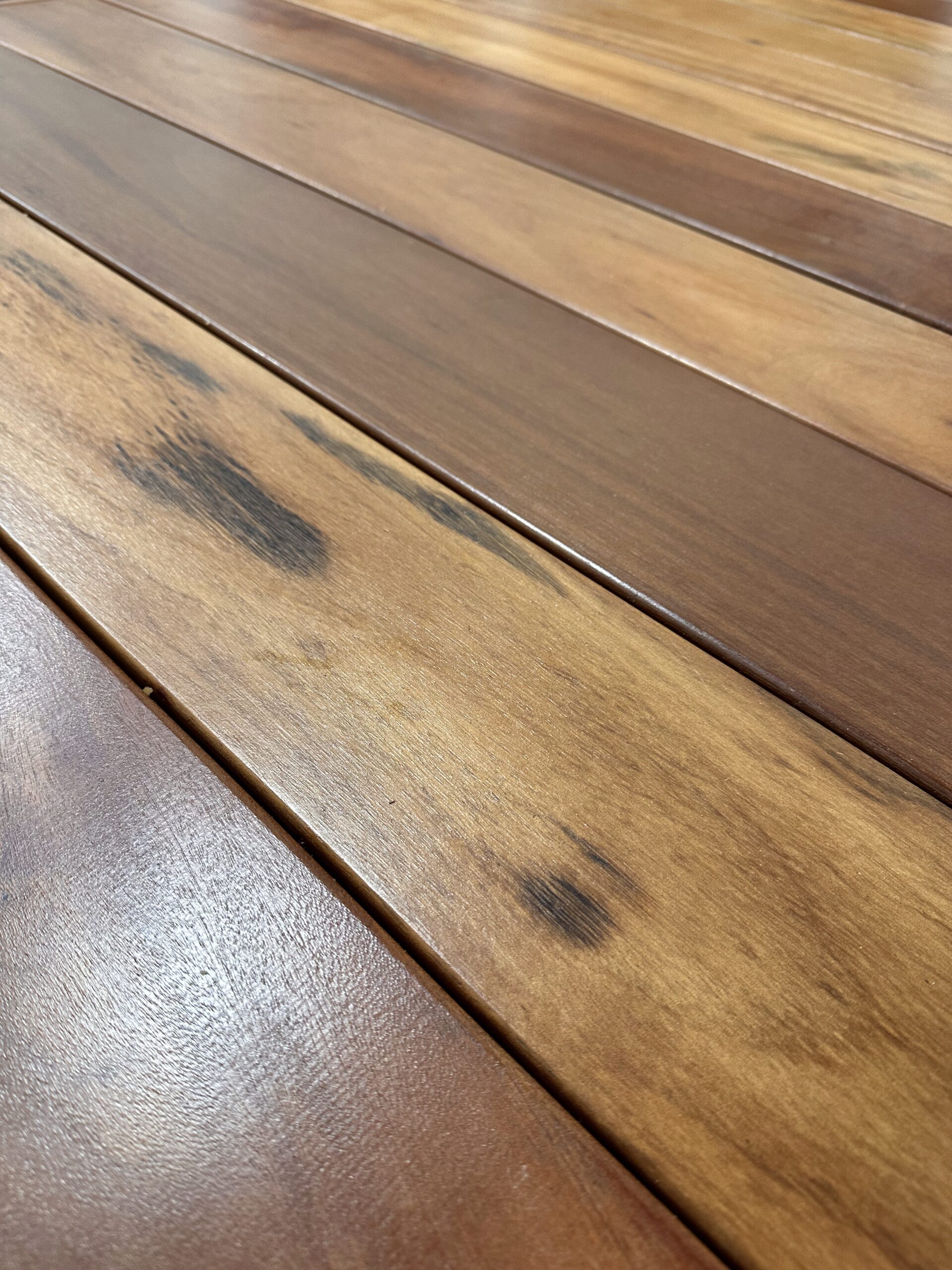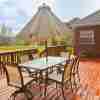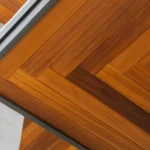tiger wood
6 Outstanding Facts That Make Tigerwood Stand Out From The Crowd
Making your dream projects a reality is easy for us, especially if we have the world’s finest types of wood to start the process. Tigerwood is one of them, a beautiful exotic Brazilian hardwood that offers one of the most unique wood grain patterns you have ever seen.
Tigerwood, also known as South American zebrawood, is a tropical hardwood tree native primarily to the east coast of Brazil. The unique name “tigerwood” is due to its beautiful contrasting grain pattern and bold stripes, which resemble those of a tiger.
Like most other types of wood, the warm, light color of Tigerwood darkens over time to a beautiful, deep reddish brown. The unique tiger stripes in rich, dark tones completely distinguish this noble wood from others.
Not only is it one of the strongest, most durable, and densest hardwoods, it also has a natural sheen. As a result, the cut of this wood gives it a metallic and oily appearance, which is considered to be one of its most attractive features.
Tigerwood is often used for interior floors, musical instruments, and fine furniture. Its durability and water-repellent properties also make it perfect for any outdoor use, including the deck boards, blinds, and boats.
In addition, this wood is very dense and heavy and, depending on the growing area, can have a Janka rating (which measures the hardness and durability of the wood) of up to 2,170 LBF.
As a solid hardwood, Tigerwood is wear resistant mainly due to its air-drying properties. This also helps it resist shrinkage once it has dried properly.
Moisture Content In Tigerwood
Moisture content (MC) is a very important measure for each type of wood. The overall MC of a wood type determines the durability and longevity of the wood. Since lumber is hygroscopic, it absorbs water. Moisture resistance is one of the key factors for any wood product.
Tigerwood generally dries to a lower moisture content, often for flooring only. In any case, it is important to allow the wood to reach a natural, gradual equilibrium that is well-balanced with the temperature and relative humidity of the environment in which it will be used and installed.
Once the wood reaches this balance, the term used for it is “equilibrium moisture content” or EMC, which is a key indicator of moisture levels in the wood.
In addition, what also helps Tigerwood’s EMC avoid any moisture problems in its products is the variety of natural environments in which this type of wood grows.
Since Tigerwood trees can reach heights of over 80 feet, they are often found in the upper canopy of the forest. However, they can also be found in the lower canopies.
As you can see, Tigerwood is an excellent, high-quality wood that can withstand the elements, has natural properties that make it rot and mildew resistant, and enhance its appearance with a natural beauty that goes beyond words.z
At Brazilian Lumber our expert team has in-depth knowledge and experience with the best woods in the world, including Tigerwood. So, you can rely on our recommendations and criteria to select the main characteristics of our products.
These are the most important properties that make Tigerwood an outstanding beauty:
- Hardness
- Insect, mold, mildew & water resistance
- Easy to maintain and does not splinter or crack
- Natural beauty
- Fire resistance
- Cost-effective
1. The Hardness And Durability Of Tigerwood

It is not as hard as Ipe, but it is extremely strong compared to domestic hardwoods, giving it stability, long life and natural strength.
Tigerwood, being so hard, expands and contracts very little. The minimal movement is a key element in the incredible longevity of Tigerwood. This also makes it an extremely tough type of wood that has a long service life in terms of use and performance.
That means it is very durable. Its density makes it resistant to water, insects and rot. With proper care, it can last over 50 years indoors and over 25 years outdoors.
When used for wood flooring, Tigerwood has a very hard surface and this hardness helps protect the smooth surface of the wood floor from wear, tear, and dent of daily use.
2. The Insect, Mold, Mildew And Water Resistance Of Tigerwood
Tigerwood and other tropical hardwoods are naturally resistant to insects. This is because most of them evolved in forests with insects that are much more adept at piercing into the wood than their North American counterparts.
Additionally, Tigerwood is waterproof due to its density and natural oils that make it nearly impenetrable, making it a great choice for wet environments such as patios and as outdoor furniture.
Its natural properties make it a very durable material capable of resisting mold, mildew, keeping it in optimal conditions.
3. Tigerwood Is Easy To Care For And Does Not Splinter Or Crack
The maintenance of this wood is easy. All you need is a mop or vacuum. For deeper cleaning, mix ¼ cup of mild soap in 2 gallons of water, and you can remove dirt without damaging the surface.
Also, this wood material does not splinter or crack easily, making it without a doubt the best ally for outdoor decks where people are barefoot most of the time.
4. Tigerwood Is A Natural Beauty
One of the main reasons why this wood is so popular is for flooring and furniture construction, as it has a stunningly attractive appearance that is both unique and exotic.
The color palette is absolutely fantastic, often a mix of light golden brown to deep reddish brown, with incredible black stripes like a tiger.
Its beauty is not only related to its appearance, colors and light lines that make it an elegant wood, but also in being an environmentally friendly natural resource.
Tigerwood is 100% natural, it is ideal for reuse, it is biodegradable, and does not create any by-products that can be harmful to the environment.
5. The Fire Resistance Of Tigerwood
In many states in the southwestern United States, fires are an important factor in making decisions about building materials. Tigerwood is highly resistant to flame spread. It typically reaches high B grade flame spread rating tests.
This means that tigerwood is a good choice for building a deck, adding an element of insolation to the exterior of your home.

6. Tigerwood Is Cost-Effective
Tigerwood is known to last from 25-75 years, depending on the environmental conditions. When you consider the cost of replacing pressure treated or composite panels over the life of a single Tigerwood installation, this tropical hardwood is much less expensive.
In addition, this tropical hardwood does not require many products for its conservation. Although it can be sealed to preserve it, it does not really need any type of preservative to maintain its natural form, that can lighten or darken with sunlight.
To summarize, this wood is an exotic, luxury, but not expensive tropical hardwood that will last for more than 20 years in perfect condition, due to its natural oils that make it resistant to moisture, water, and decay.
Its durability, hardness, and remarkable & unique appearance make it a type of wood that clearly stands out from the crowd.












